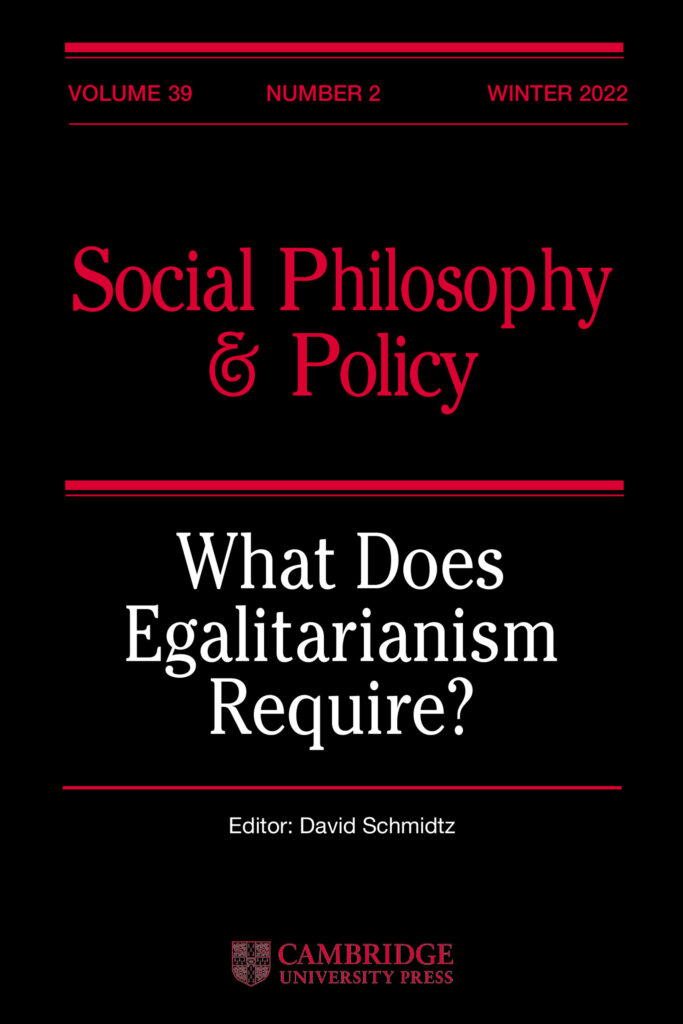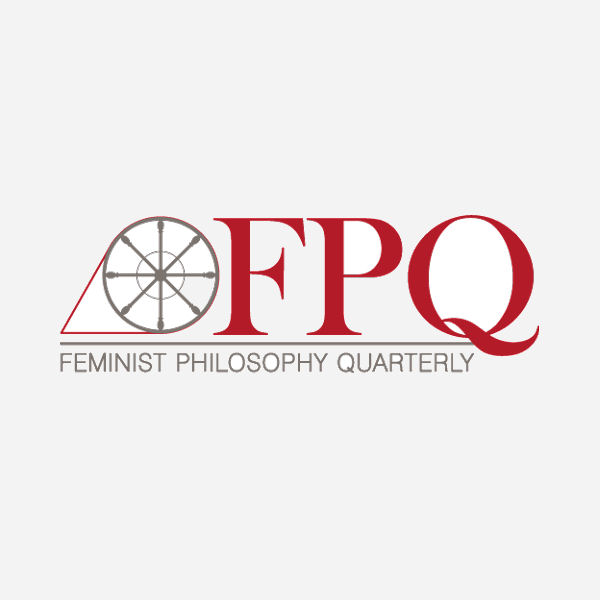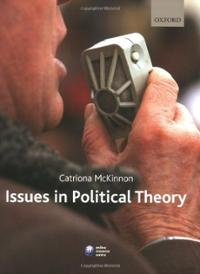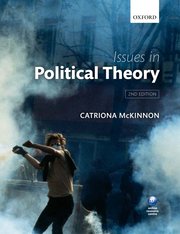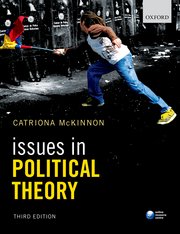feminism
-
“Making Inequality Visible Without Making it Worse”
“Making Inequality Visible Without Making it Worse” is published in Social Philosophy & Policy (Vol. 39 No. 2, 2022). You can read it here.
Abstract: Egalitarian commitments have often been thought compatible with practices that are later identified as inegalitarian. Thus, a fundamental task of egalitarianism is to make inequality visible. Making inequality visible requires including marginalized people, questioning what equality requires, and naming inequality. At the same time, egalitarianism is a movement for change: egalitarians want to make things more equal. When egalitarians seek change at the institutional level, the two egalitarian tasks are complementary: making inequality visible is part of campaigning to make things better. However, at the level of social norms there is a dilemma because making inequality visible can make things worse. Making inequality visible can reinforce unequal norms and fail to address intersectionality. The case of gendered pronouns illustrates this dilemma.
-
Sex, Money, and Luck in Sport

Clare Chambers, “Sex, Money, and Luck in Sport” published in Journal of Medical Ethics Vol. 46 No. 9 (2020). You can read the paper here.
-
Respect, Religion, and Feminism
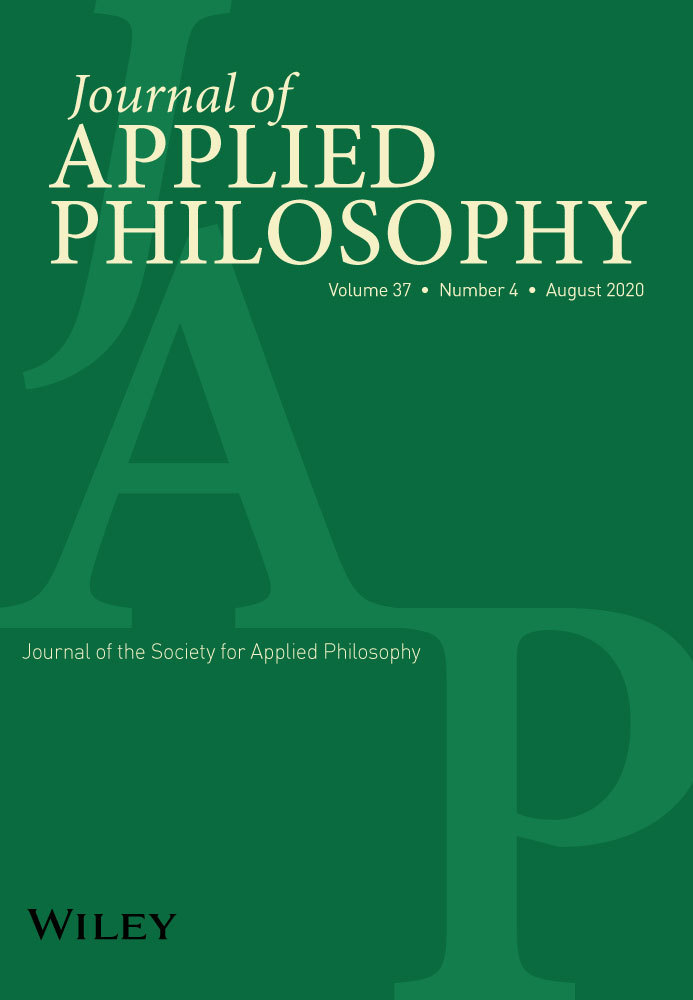
Respect, Religion, and Feminism: Comments on Lori Watson and Christie Hartley, Equal Citizenship and Public Reason: A Feminist Political Liberalism is published in Journal of Applied Philosophy September 2020. You can read the paper here.
Abstract: There is significant disagreement among feminists and liberals about the compatibility between the two doctrines. Political liberalism has come under particular criticism from feminists, who argue that its restricted form of equality is insufficient. In contrast, Lori Watson and Christie Hartley argue that political liberalism can and must be feminist. This article raises three areas of disagreement with Watson and Hartley’s incisive account of feminist political liberalism. First, it argues that an appeal to a comprehensive doctrine can be compatible with respecting others, if that appeal is to the value of equality. Second, it takes issue with Watson and Hartley’s defence of religious exemptions to equality law. Third, it argues that political liberalism can be compatible with feminism but that it is not itself adequately feminist. It concludes that political liberalism is not enough for feminists.
-
Rethinking The Body

I have recorded an essay on how we think about our bodies for Rethink – a BBC radio series that considers how the world should change after the coronavirus pandemic. You can listen to the programme and see the others in the series here.
-
Medicalised Genital Cutting and the Limits of Choice
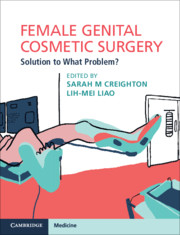 in Female Genital Cosmetic Surgery: Interdisciplinary Analysis and Solution, edited by Sarah Creighton and Lih-Mei Lao (Cambridge University Press, 2019).
in Female Genital Cosmetic Surgery: Interdisciplinary Analysis and Solution, edited by Sarah Creighton and Lih-Mei Lao (Cambridge University Press, 2019).In this chapter I challenge the idea that an appeal to choice exonerates Female Genital Cosmetic Surgery (FGCS). My argument proceeds in five stages. First, I consider the normative role that choice plays in liberal society and philosophy. Second, I note that UK law does not treat choice as adequate for accessing FGCS. Third, I consider the relationship between choice and the concept of normality. Fourth, I consider choice in the context of cosmetic surgery generally, and analyse the distinctive features of FGCS. Fifth, I consider the policy implications of my analysis.
You can find the book here.
-
Ideology and Normativity
 This paper investigates the possibility of what Sally Haslanger calls ‘ideology critique’. It argues that ideology critique cannot rely on epistemological considerations alone but must be based on a normative political theory. Since ideological oppression is denied by those who suffer from it is it is not possible to identify privileged epistemological standpoints in advance.
This paper investigates the possibility of what Sally Haslanger calls ‘ideology critique’. It argues that ideology critique cannot rely on epistemological considerations alone but must be based on a normative political theory. Since ideological oppression is denied by those who suffer from it is it is not possible to identify privileged epistemological standpoints in advance.You can read the paper here and on the OUP Philosophy Festival Reading List here.
-
Ideology and Normativity
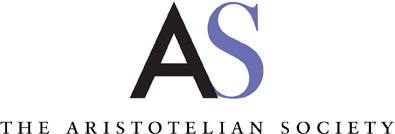 This paper investigates the possibility of what Sally Haslanger calls “ideology critique.” It argues that ideology critique cannot rely on epistemological considerations alone but must be based on a normative political theory. Since ideological oppression is denied by those who suffer from it is it is not possible to identify privileged epistemological standpoints in advance.
This paper investigates the possibility of what Sally Haslanger calls “ideology critique.” It argues that ideology critique cannot rely on epistemological considerations alone but must be based on a normative political theory. Since ideological oppression is denied by those who suffer from it is it is not possible to identify privileged epistemological standpoints in advance. -
Judging Women: 25 Years Further Toward a Feminist Theory of the State
Feminist Political Quarterly (Vol. 3 No. 2, 2017).
The title of this paper is “Judging Women”, a phrase that can be understood in three senses. First, when is it acceptable or necessary to make judgements about what women do? Feminists may be wary of subjecting women’s choices and actions to criticism, but the paper argues that such criticism is implied by a feminist perspective on patriarchy, a perspective which is necessarily critical. Second, when can women engage in the act of judging? The paper argues that being judgmental is popularly considered a vice, but only when done by women. Feminism should insist on women’s right to judge. Third, how are we to judge who counts as a woman? The paper investigates the commonalities and contrasts between feminism and trans issues, and discusses the concepts of essentialism and transphobia. The focus throughout is on MacKinnon’s work, which offers profound, sustained, rich analysis of these questions but does not fully resolve them.
You can read the paper here.
-
Feminism and Liberalism
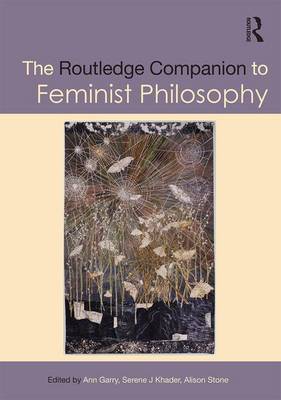 In Routledge Companion to Feminist Philosophy, edited by Serene Khader, Ann Gary, and Alison Stone (Routledge, 2017).
In Routledge Companion to Feminist Philosophy, edited by Serene Khader, Ann Gary, and Alison Stone (Routledge, 2017).For some feminists liberalism is little more than patriarchy in disguise; for others, it is the framework for securing justice. Feminism, like all other positions in political philosophy, is a range of views rather than a single determinate viewpoint. One aspect of this range is that feminism includes both academics and activists, for whom the term ‘liberalism’ can signify rather different things; after all, liberalism is not one single thing either.
In this chapter I start by considering feminist criticisms of liberalism. I discuss two aspects of feminist critique: first, academic feminist critiques of non-feminist liberal philosophy; second, activist feminist critiques of what is variously called “choice feminism”, “third-wave feminism”, or simply “liberal feminism”.
I then move to those feminists who endorse liberalism and argue that a suitably modified liberalism offers the best path to gender equality. This position, “feminist liberalism,” is mostly found in contemporary Anglo-American political philosophy. Feminist liberals understand liberalism as a commitment to substantive, demanding principles of justice based on freedom and equality. Included in this section are those feminist approaches that combine radical feminism’s insights about the limitations of individual choice with feminist liberalism’s commitment to autonomy, equality, and justice.
See more about the book here.
-
Judith Butler’s Gender Trouble
In The Oxford Handbook of Classics in Contemporary Political Theory, edited by Jacob T. Levy (OUP, forthcoming).
This chapter provides a critical introduction to Judith Butler’s classic work Gender Trouble, including an analysis of the impact it has made on political theory.
The chapter is online first and you can read it here.
-
The Marriage-Free State
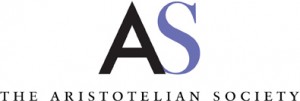 Proceedings of The Aristotelian Society (2013). This paper sets out the case for abolishing state-recognised marriage and replacing it with piecemeal regulation of personal relationships. It starts by analysing feminist objections to traditional marriage, and argues that the various feminist critiques can best be reconciled and answered by the abolition of state-recognised marriage. The paper then considers the ideal form of state regulation of personal relationships. Contra other recent proposals equality and liberty are not best served by the creation of a new holistic status, such as civil union, or by leaving regulation to private contracts. Instead, the state should develop piecemeal regulations that apply universally. You can read the paper and listen to the podcast here or on the OUP Philosophy Festival Reading List here.
Proceedings of The Aristotelian Society (2013). This paper sets out the case for abolishing state-recognised marriage and replacing it with piecemeal regulation of personal relationships. It starts by analysing feminist objections to traditional marriage, and argues that the various feminist critiques can best be reconciled and answered by the abolition of state-recognised marriage. The paper then considers the ideal form of state regulation of personal relationships. Contra other recent proposals equality and liberty are not best served by the creation of a new holistic status, such as civil union, or by leaving regulation to private contracts. Instead, the state should develop piecemeal regulations that apply universally. You can read the paper and listen to the podcast here or on the OUP Philosophy Festival Reading List here. -
“The Family as a Basic Institution”: A Feminist Analysis of the Basic Structure as Subject
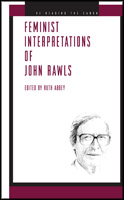 in Ruth Abbey (ed.), Feminist Interpretations of Rawls (Penn State Press, 2013).
in Ruth Abbey (ed.), Feminist Interpretations of Rawls (Penn State Press, 2013).In Section 50 of Justice as Fairness: A Restatement, titled “The Family as a Basic Institution”, John Rawls replies to Susan Moller Okin’s feminist critique of A Theory of Justice. The question of how Rawlsian justice might secure gender equality has been discussed by many feminists, most notably by Okin. However, as I argue in this chapter, the Rawls-Okin debate raises more questions than it answers. Okin criticises Rawls for failing to apply his theory adequately to the family: she criticises not Rawls’s approach in general, but his attitude to the family in particular. Okin argues that a consistent application of Rawlsian theory would secure gender justice, but that Rawls is remiss in refusing such consistency. In fact, as I show, Rawls’s remarks on the family reveal a more fundamental problem with Rawlsian theory than Okin allows. It is not that Rawls fails to apply his theory correctly to the family, but rather that the specific case of the family illustrates deep-seated difficulties with Rawlsian justice as a whole.
The problem, to give an outline, is that Rawls’s ambiguous remarks on the family are comprehensible only at the expense of his fundamental claim that there is something distinctive about the application of justice to the basic structure. Okin criticises Rawls for failing to make good on the fact that the family is part of the basic structure. If he did make good, Okin claims, he would see that the principles of justice must apply to the family in a much more extensive way than he actually allows. As I show, however, the family is one illustration of the fact that how the principles of justice apply to an institution does not depend on whether that institution is part of the basic structure. This is a problem for Rawls because the distinctiveness of the basic structure is a crucial part of the political liberalism which, by the end of his work, has become essential to the Rawlsian project.
In this chapter I first outline Okin’s critique of Rawls in more detail, and provide a valid formalisation of her argument against Rawls. I then examine the main premises of her argument and look for evidence to support Okin’s interpretation of Rawls. I conclude that Okin’s interpretation is flawed but nonetheless highlights problems with Rawls’s claim that the basic structure is the subject of justice. I then consider and reject the argument that Rawls’s theory is consistent according to what I call the “whole structure view”: that the principles of justice apply to the basic structure considered as a whole. Finally, I consider G.A. Cohen’s argument that the basic structure distinction is problematic. I agree with Cohen’s criticism of the distinction, but suggest that Cohen is wrong in situating the problem with the issue of coercion. I conclude that Rawls’s position on justice in the family is at odds with his claim that the basic structure is uniquely the subject of justice.
You can see more about the book here.
-
Feminism
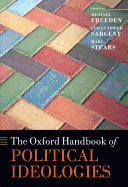 This chapter sets out the state of contemporary feminism, including considering the sense in which it is and is not an ideology. It argues that contemporary feminism must argue against two patriarchal claims: The Prison of Biology and The Fetishism of Choice. In their place, feminism argues for three theses: The Entrenchment of Gender, The Existence of Patriarchy, and The Need for Change.
This chapter sets out the state of contemporary feminism, including considering the sense in which it is and is not an ideology. It argues that contemporary feminism must argue against two patriarchal claims: The Prison of Biology and The Fetishism of Choice. In their place, feminism argues for three theses: The Entrenchment of Gender, The Existence of Patriarchy, and The Need for Change.You can read the chapter here.
-
What kind of dialogue do we need? Gender, deliberative democracy and comprehensive values
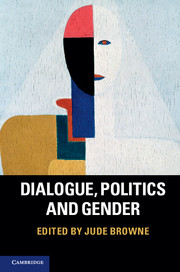 (with Phil Parvin) in Jude Browne (ed.) Dialogue, Politics and Gender (Cambridge University Press, 2013).
(with Phil Parvin) in Jude Browne (ed.) Dialogue, Politics and Gender (Cambridge University Press, 2013).This paper claims that a focus on gender as a source of controversy, and on feminism as a theoretical and practical approach, prompts a rethinking of the role of dialogue away from the liberal constitutionalist focus of deliberative democracy and towards a more fluid, reflexive approach.
-
Gender
Catriona McKinnon (ed.) Issues in Political Theory (Oxford University Press, 2008, 2nd edition 2011).
This textbook from OUP introduces the key issues and themes in political theory
through chapters and case studies written by a variety of international political philosophers. My chapter on gender discusses issues such as the varieties of feminism, the family and care, sex and violence, legal equality, and has a special case study on pornography. -
Masculine domination, radical feminism and change
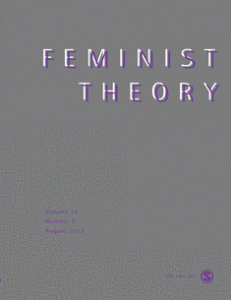 Feminist Theory Vol. 6 No. 3 (December 2005).
Feminist Theory Vol. 6 No. 3 (December 2005).This article argues that the feminist turn to Pierre Bourdieu in an attempt to conceptualise the tension between freedom and agency is helpful, but is made more so when the similarities between the work of Bourdieu and radical feminist Catharine MacKinnon are noticed. MacKinnon’s strategies for change, particularly consciousness-raising, are well suited to a Bourdieuean approach.
You can read the paper here.
-
Autonomy and equality in cultural perspective: Response to Sawitri Saharso
 Feminist Theory Vol. 5 No. 3 (December 2004).
Feminist Theory Vol. 5 No. 3 (December 2004).This paper criticises Sawitri Saharso’s argument that hymen repair surgery and sex-selective abortion can be both multiculturalist and feminist policies.
You can read the paper here.
-
Are breast implants better than female genital mutilation? Autonomy, gender equality and Nussbaum’s political liberalism
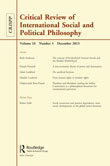 Critical Review of International Social and Political Philosophy (CRISPP) Vol. 7 No. 3 (Autumn 2004).
Critical Review of International Social and Political Philosophy (CRISPP) Vol. 7 No. 3 (Autumn 2004).This paper outlines two forms of autonomy, and argues that political liberals such as Martha Nussbaum wrongly prioritise second-order autonomy. As a result, they cannot provide adequate criticism of unjust social norms. The two cases of breast implants and female genital mutilation are compared to illustrate this point.
